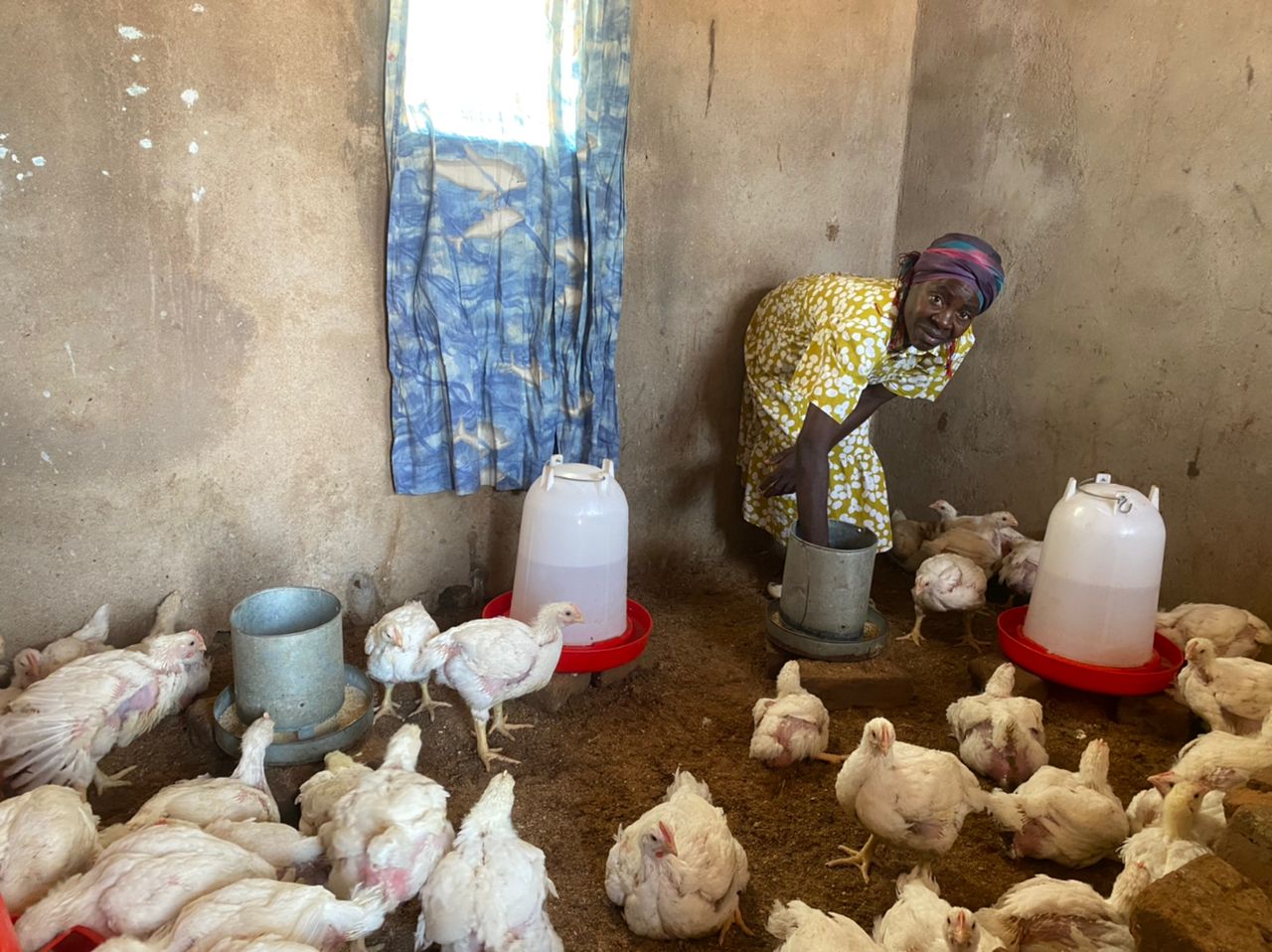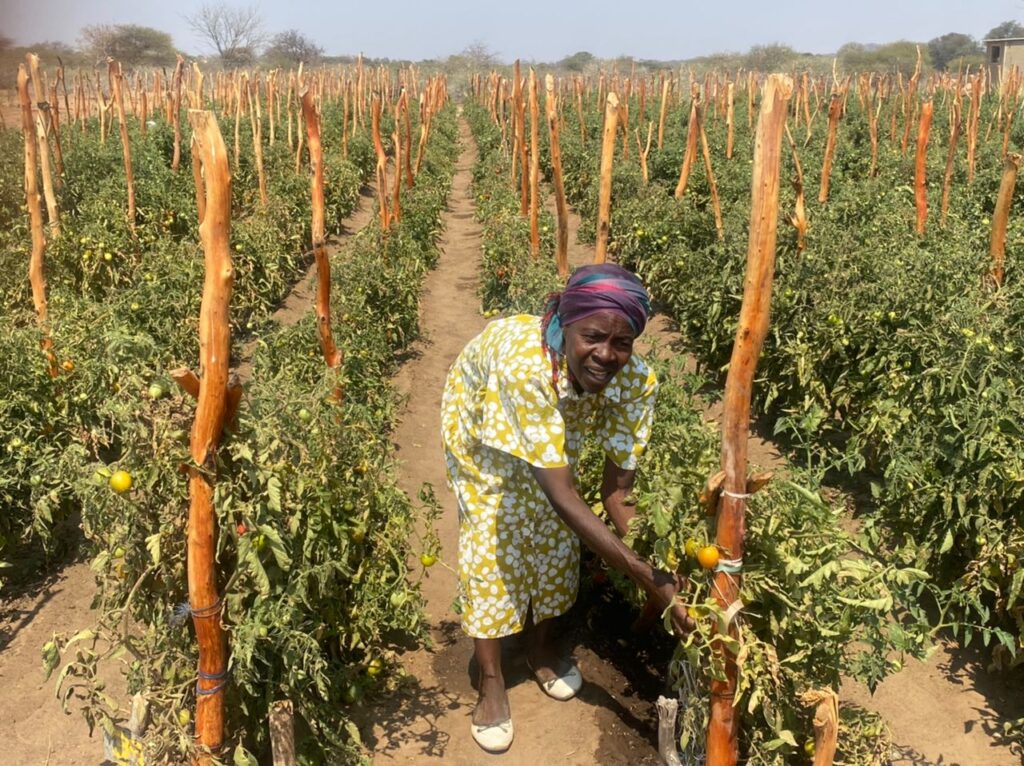
Picture of: (Celiwe Moyo pointing to where she used to grow her vegetables before registering under Horticulture Value Addition and Women Economic Empowerment Project (HOVAWEEP).)
Celiwe Moyo (56) is a cheerful widow with a charismatic personality from Sengezane Village in Ward 14 (Gwanda) and is a member of Phakamani Horticulture Centre.
In 2016 after the death of her husband, Celiwe had no regular income to fend for her three children 6,9 and 12 years old. The family started to depend on handouts for survival. Things became even tougher for her, and she recalls selling some of her personal clothes so that she could buy mealie-meal to cook porridge for the children. The struggle was real, she narrates.
“After the death of my husband, all hell broke loose. We were better off, but it all vanished into thin air. Some of it was stolen and a few things got damaged. None of the remaining property was fit for resell and we ended up keeping it, she said.
“Raising the children alone was so hard for me (tears shed as she narrates), l recall selling my personal clothes just to buy a small packet of mealie-meal for porridge as our last supper. I used to grow vegetables at a nearby garden, but l ended up abandoning the area because the water source was 200 meters away which was far, said Celiwe.
When Celiwe learned from a neighbor about the Horticulture Value Addition and Women Economic Empowerment Project (Hovaweep) a program training on high-value horticulture production, food processing, and value addition, she gladly registered. During the training, Celiwe learned climate-smart agricultural practices and business skills to ensure high yields.
After applying the skills and financial support from Hand in Hand Zimbabwe, Celiwe now harvests 120kgs of tomatoes per month and sells a 20-liter bucket full of tomatoes for USD6.On the other hand, she at least makes USD 35,50 per month from the 75 bundles of vegetables she sells.
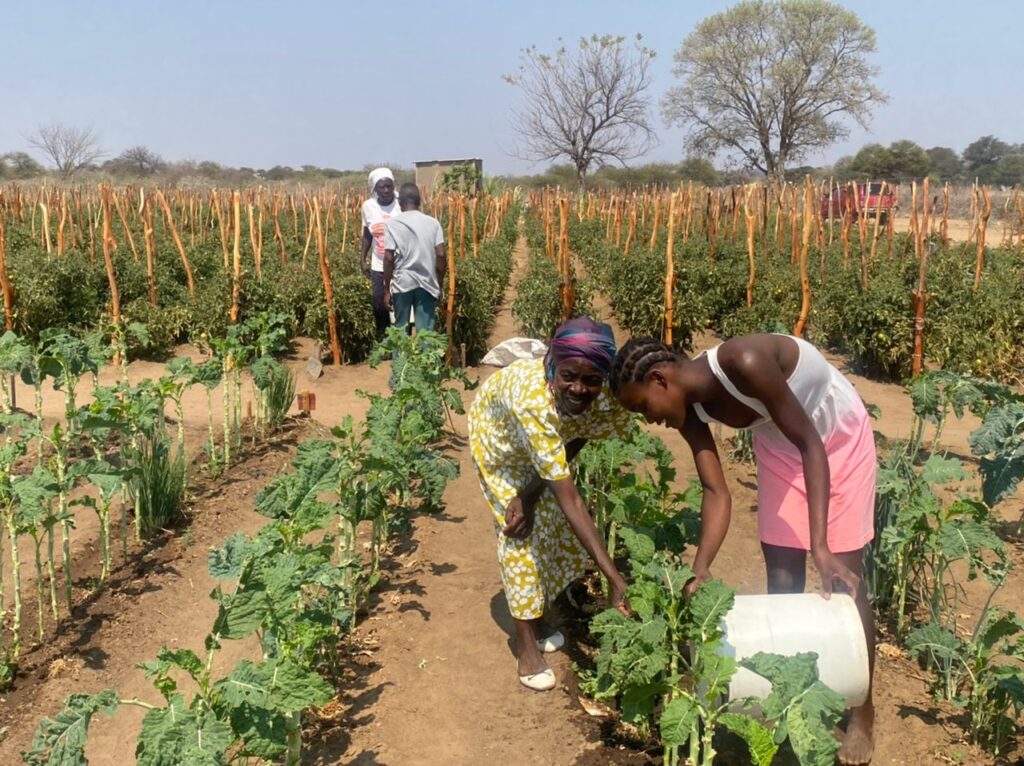
Pictures: (Celiwe, posing for a photo while showing off her tomato garden and with one of her daughters watering her vegetable garden).
Through time, with a steady source of income from the market garden, Celiwe has opened other streams of income. She has managed to start a poultry business with 20 indigenous chickens and 75 broiler chickens. Her determination for a better life has been evident in sending her children to school for a better tomorrow.
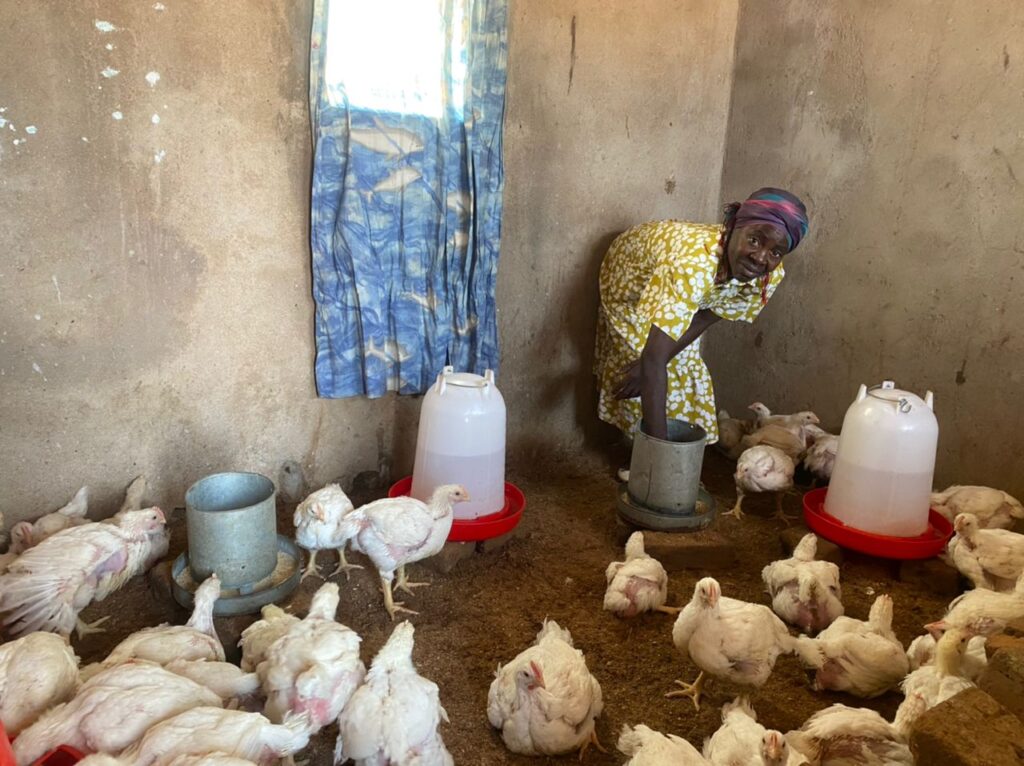
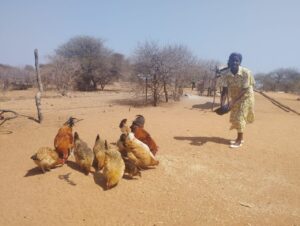
In pictures ( Celiwe pose for a picture while showing off her 75 broiler chickens and a few indigenous chickens )
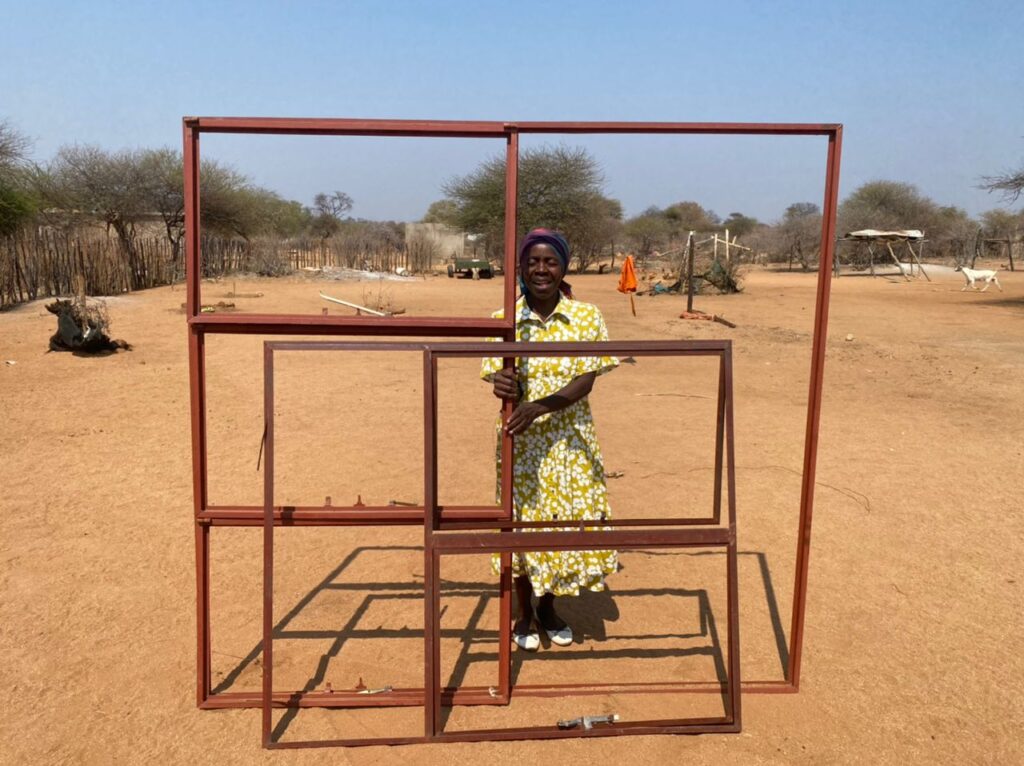
In Picture (Celiwe poses while holding her window and door frames )
Over the past two months, Celiwe has managed to buy a scotch cart and two donkeys, which she uses as a mode of transport. These have helped her in the transportation of her produce to marketplaces and fetching water for her household. In the past, she had the burden of traveling 3kms to fetch 40 liters of water from the river before it dried up but after the installation of the solar-powered pump by Hand in Hand Zimbabwe, her life has been made easy.
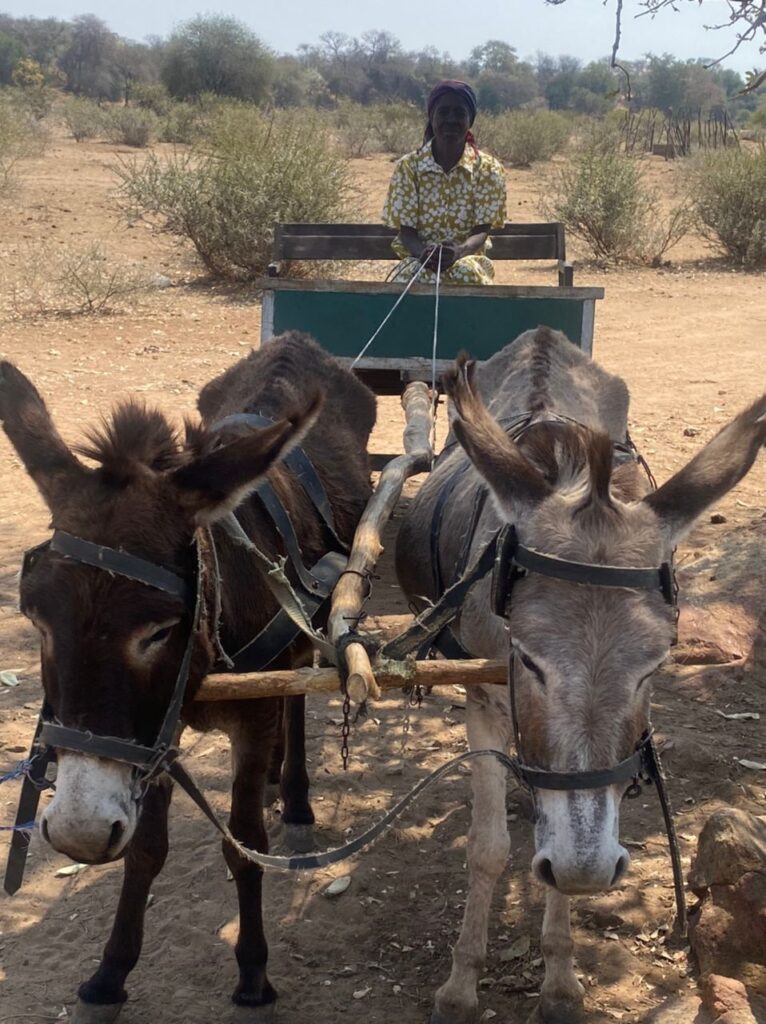 In Picture (Celiwe riding on her scotch cart while waiting for her two daughters).
In Picture (Celiwe riding on her scotch cart while waiting for her two daughters).
Celiwe is currently planning to build a two-roomed house and so far, has managed to buy two window frames, two door frames, and a gate for USD 140.
Today, she is a role model to others. She extends her gratitude to Hand in Hand Zimbabwe for assisting her with training and support throughout the project. Celiwe is a testimonial of the power of empowering women farmers through training and financing of their projects.

